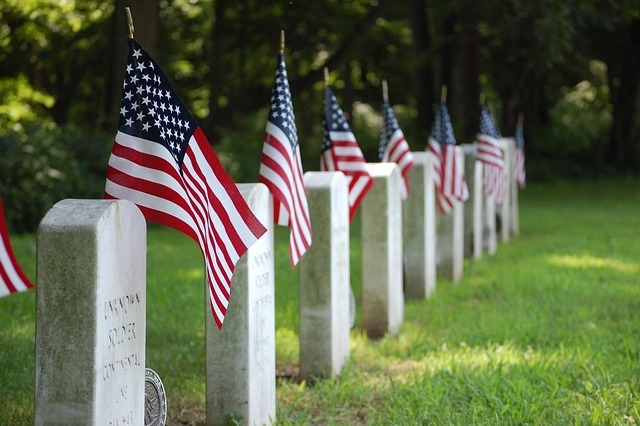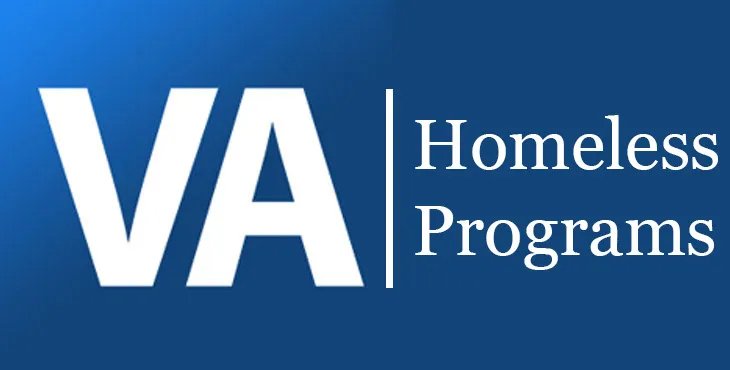Military Benefits Guide for Spouses & Dependents

Comprehensive Military Benefits Guide for Spouses and Dependents
Some military benefits for spouses and dependents are available regardless of the involvement or status of the service member. Others may require the service member’s participation (transferring GI Bill benefits, for example) or require troops to apply through the chain of command or other processes on behalf of the spouse or dependent. At least one benefit (the Basic Needs Allowance) requires the service member to apply on behalf of the entire family.
In other cases, such as medical care, you may only have to provide your current military spouse or dependent ID to get, use, or continue using the benefit.
- Education Benefits (including GI Bill transfer)
- VA Home Loans
- TRICARE
- Career Assistance
- Child Care
- Basic Needs Allowance
- Burial benefits
Education Benefits for Military Spouses and Dependents
There are a variety of educational benefits for military spouses. Some benefits are not provided by the military but by private enterprises, Veteran Service Organizations, or other non-government entities. This section features military education benefits for spouses provided by the federal government.
They include Post 9/11 GI Bill benefits which must be transferred from the servicemember’s name to the dependent or spouse. This can only be done while the servicemember is still under a military service commitment and a new service commitment must be made for the GI Bill benefits to be transferred.
Spouse Education and Career Opportunities (SECO) is a DoD-funded resource military spouses can use if they want to plan a return to academia. SECO features a variety of resources, including a scholarship finder and there is a MyCAA Scholarship worth up to $4,000 for qualifying spouses looking to return to school. You’ll find SECO at the MilitaryOneSource official site.
Read More: MySECO: 4 Reasons Military Spouses Need to Take Advantage
The Marine Gunnery Sergeant John David Fry Scholarship is offered to qualifying spouses and children who are survivors of one of the following circumstances:
- Active-duty service members who died in the line of duty on or after September 11, 2001;
- Selected Reserve members who died from a service-connected disability on or after September 11, 2001
Discuss the Fry Scholarship with a representative of your selected school or institution. Not all schools are approved for this program and you’ll need to determine if the opportunity is available before you discuss applying for the Fry Scholarship with your admissions counselor
>> Search scholarships for military spouses and dependents with the CollegeRecon Scholarship Finder
The VA Survivors’ and Dependents’ Educational Assistance (DEA) is a federal program offering education and training to qualified dependents of vets who are either permanently disabled due to military service or who died on active duty as a result of military service.
- Are permanently and totally disabled because of a service-related condition, or
- Died while on active duty or as a result of a service-related condition
Discuss VA DEA with a representative of your selected school as not all schools are approved for this program. It’s best to determine if DEA is an option option to you before you discuss applying for DEA with your admissions counselor
Read More: VA Survivors’ and Dependents’ Educational Assistance
VA Home Loans for Military Spouses
The VA Loan program offers no-money-down, low-interest home loans to qualifying servicemembers. It also allows service members and spouses to apply for a VA mortgage together, treating the loan application differently than if a veteran and a non-veteran who is not a spouse were to apply together.
There is no VA home loan option for the spouse alone. There are exceptions in cases where the service member has died. In such cases, the qualifying criteria include at least one of the following:
The Veteran –
- Is a prisoner of war (POW)
- Is missing in action (MIA)
- Died while in service or from a service-connected disability and you didn’t remarry, or
- Died while serving, or from a service-connected disability. In such cases you must not have remarried before you were 57 years old or before December 16, 2003, or
- Had been totally disabled and passed away
If you are claiming VA home loan benefits as a surviving spouse, you will need to contact the Department of Veterans Affairs directly if you assist with the application, VA Form 26-1817 Request for Determination of Loan Guaranty Eligibility—Unmarried Surviving Spouses.
Read More: Questions and Answers About VA Home Loans
>> Get your questions answered with a free VA Loan consultation
TRICARE Benefits for Military Spouses and Dependents
Active duty service members are required to enroll in a TRICARE plan that is based on the location of their duty station. TRICARE Prime and TRICARE Remote are the stateside plans, and TRICARE Prime Overseas and TRICARE Prime Remote Overseas are the basic plans the servicemember can choose to enroll their spouse and/or dependents in.
Read More: TRICARE: A Comprehensive Guide
Family members also have the option to select other TRICARE options based on the location they are in. Those options include, but may not be limited to:
- TRICARE Select is described as a “self-managed preferred provider organization (PPO)” plan offered to those in the United States
- US Family Health Plan is offered in select locations only. This is described on the TRICARE official site as “an additional TRICARE Prime option available through networks of community-based, not-for-profit health care systems”.
- TRICARE For Life is described as “Medicare-wraparound coverage for TRICARE-eligible beneficiaries who have Medicare Part A and B.”
- TRICARE Select Overseas offers “comprehensive coverage” for those in overseas locations.
There are more flexible options offered to spouses and dependents, likely because it’s understood that some may already have healthcare options through an employer or school; the additional healthcare options for spouses and dependents are designed to accommodate this depending on the plan and the nature of your coverage.
Read More: TRICARE For Spouses And Dependents
Career Assistance for Military Spouses
There are multiple types of career assistance for military spouses, starting with spouse hiring preference. There are also programs that help spouses earn degrees or other certifications that can help military spouses land portable careers, such as MyCAA.
MyCAA has expanded over the years, adding eligibility for MyCAA scholarships “to militaryvspouses in the pay grades of E-7, E-8, E-9 and W-3” according to Military OneSource, which adds that assistance “is approved as applications are received. If available funding is expended, no new registrations for the program will be approved until the following fiscal year” which to some is the long way of saying “first come, first served while supplies last.”
Under MyCAA expansion, military spouses are “provided a one-time benefit of up to $4,000 that must be expended over a three-year consecutive period” and this option is offered to military spouses of active-duty, National Guard, and reserve members on Title 10 orders in grades E-1 through E-9, W-1 through W-3 and O-1 through O-3.
Spouses can verify eligibility and register for a MyCAA account at the MyCAA page on Military OneSource.
Some Options Have Been Replaced
Before 2019, the DoD used the Priority Placement Program to register military spouses so they could claim their federal hiring preference. But that program entered the sunset phase in 2019 and no longer operates. Does that mean there is no longer a preference program? No.
The replacement option, known as Military Spouse Preference or MSP, is described by the Defense Department as a “special federal hiring authority that allows spouses to be noncompetitively considered” for federal positions. MSP does NOT require an in-person appointment to get started, unlike the previous PPP option.
Now, military spouses simply identify themselves as candidates for MSP when they apply for federal work using USAJobs.gov. This is an advantage for spouses who know they will be going overseas soon but don’t know what assignment yet.
MSP also eliminates a past requirement limiting applicants to a single “occupational series”. You can now choose any job that offers MSP, rather than being limited to a specific area of expertise.
This is not the only career assistance type benefit offered to military spouses. Other options include the USO Pathfinder Transition Program which offers professional development options for military spouses that can be used “throughout the duration of military service as well as in preparation for life post-military” according to the USO official site.
The U.S. Department of Labor offers TEAMS or Transition Employment Assistance for Military Spouses and Caregivers. This typically consists of employment workshops to help military spouses meet their career goals.
TEAMS workshops are instructor-led virtual training, provided as stand-alone training. modules. You can take all of the workshops or just a few and they can be taken in any order that fits your availability and schedule.
There are also options for military spouses who accompany active duty service members to overseas duty locations, including spouse hiring preference. To apply for preference at an overseas base, contact the Human Resources office at the base and explain that you need information on the spouse hiring preference policy for that installation.
Read More: Overseas Military Spouse Career Options
>> Find companies that help place military spouses with CareerRecon
Child Care
The Department of Defense offers affordable childcare access to military and DoD-affiliated families. These programs are offered at military bases around the world, and while not every single base has child care options (forward deployed, remote assignments, and hardship assignments for example) the majority of troops and their families may be able to take advantage of these DoD child care options.
Options include:
- Child Development Centers
- Family Childcare
- “24/7 Centers”
- School Age Care facilities
- The “Military Child Care in Your Neighborhood” program
Who Is Eligible for Military Child Care?
Military affiliation is one of the requirements for military child care. Children enrolled in a DoD program must be the dependents of “eligible sponsors” including parents who are active duty military, DoD civilians, Guard/Reserve members who are on orders, Gold Star spouses, and many others.
Childcare costs are assigned based on household income, which makes this a benefit that can make a big financial difference for junior enlisted troops. Signing up for military child care means contacting the base Child Development Center where you are stationed or where you will be reassigned to.
You can use a DoD search tool at MilitaryChildCare.com to locate military child care options anywhere offered in the world, and you’ll want to do this as soon as you get PCS orders as demand for military child care is high and waiting lists typically apply.
The sooner you get your name on the waiting list the sooner you can get access to affordable military child care.
School Age Care facilities are offered on many military installations; these programs are for those in kindergarten through sixth grade. Care is available before and after school, and even for non-school days and summer vacations. Many of these programs are run from base youth centers or Child Development Centers, and all are certified and accredited.
Many military bases feature other after-school options and other programs for school-age children who are too old for Child Development Center care. These programs vary depending on the base but in general, you may find options including:
- Installation youth center programs
- 4-H Military Partnerships
- Defense Department summer camps
- Military Kids Connect (a website designed to celebrate military youth and help them cope with military life)
Read More: Military Childcare Basics
Basic Needs Allowance
The Basic Needs Allowance, also referred to as BNA, is not a military benefit paid directly to active duty military spouses, but military spouses and dependent children (in military households that qualify for the benefit) are directly supported by it. The service member applies for this benefit, which is described as a “supplemental monthly payment” meant for qualifying large, low-income military households.
You read the above correctly; BNA is a need-based allowance. Eligibility for it requires a calculation of the service member’s gross household income from the previous year and the current year’s gross income. Both must fall below 150% of Federal Poverty Guidelines for their assigned duty station location and household size.
Read more: Basic Needs Allowance
VA Burial Benefits For Military Spouses
The Department of Veterans Affairs offers burial benefits for spouses, dependents, and survivors. VA burial benefits include a “final resting place in one of 155 VA national cemeteries maintained by VA throughout the United States.”.
Spouses may be buried with the Veteran, and VA offers perpetual care of the gravesite. “Eligible spouses and dependents may be buried in a VA national cemetery even if their Veteran loved one is not buried or memorialized in a VA national cemetery, or if their death occurs before the Veteran’s.”
Military families have the option to contact the VA for a “pre-need determination” of burial benefit options. While reserving a gravesite is typically not possible, military spouses can apply to learn ahead of time whether burial in a VA national cemetery is an option. To apply for any VA death benefit, the following may be required:
- Social Security numbers
- Date and place of birth for veteran and spouse
- Military status and service history and/or military records
Apply at the VA official site.
RELATED:
About the author
Editor-in-Chief Joe Wallace is a 13-year veteran of the United States Air Force and a former reporter/editor for Air Force Television News and the Pentagon Channel. His freelance work includes contract work for Motorola, VALoans.com, and Credit Karma. He is co-founder of Dim Art House in Springfield, Illinois, and spends his non-writing time as an abstract painter, independent publisher, and occasional filmmaker.


